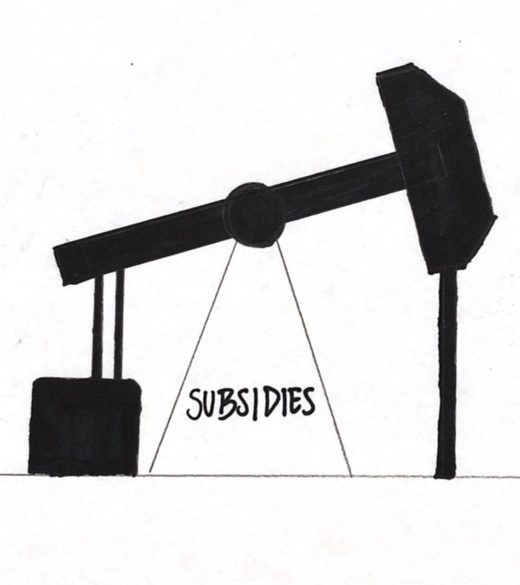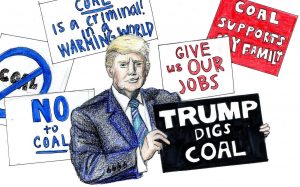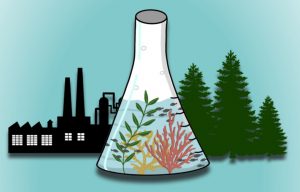Government subsidizes fossil fuels at the expense of the environment
October 20, 2019
Despite advances in renewable energy, the government continues to subsidize nonrenewable energy sources such as oil and coal because of the grave economic effects of removing them.
According to AP Economics teacher Daniel Farmer, “The purpose of a subsidy … is to make it easier to provide more of that good/resource in order to make it a livable amount of profit.”
Currently, the government spends billions of dollars subsidizing fossil fuels, originally a measure to ensure a consistent supply of fuel, as fuel is now an everyday necessity. However, doing so has profound environmental effects; if they continue at this rate, fossil fuel emissions would exceed the standards set by the Paris Accord in 2016. On the current trajectory, the temperature will likely increase by 2 degrees Celsius in the next few decades.
They cannot just be removed for a multitude of reasons. In terms of legislation, it is difficult to define what a subsidy is. They come in many different forms, creating a complicated web of funding. In addition, there are many indirect ways that the government supports the fossil fuel industry. For this reason, estimates of how much the government spends on the fossil fuel industry vary immensely; they range from 20.5 billion (OECD) to 5.2 trillion (IMF).
“Undoing these cryptic subsidies will not be as simple as zeroing out a line item in a budget,” Vox reports.
Even if it were feasible, removing oil subsidies could negatively impact many low-income communities because doing so could increase prices for everyday necessities that rely on oil, such as gas. This is because subsidies can lower the production cost of a product, meaning that to keep profit margins the same, prices have to rise.
The U.S. is very reliant on crude oil, meaning that a reduced efficiency of the crude oil industry will have a profound effect on America.
In particular, the Energy Information Administration says that 14.02 million barrels of oil are used for transportation each day. Being able to access transportation is critical for getting a job and maintaining a low cost of living. This means that the increased cost of necessities will have a significant impact on low-income communities.
The New York Times said that a study by NYU showed that “those with some, but insufficient, access to transportation had the highest rates of unemployment and the lowest incomes.”
This means that if prices of gas are raised, things will be increasingly difficult for low-income families. Consequently, the oil industry will have to be subsidized until the country is less reliant on fossil fuels, which will require increased funding for clean energy.
But clean energy will likely continue to receive low government funding for some time, as it lacks the appeal of fossil fuels. It is very new and not as profitable, which limits the growth of the industry.
“One of the limitations of green energy is that it tends to be more expensive than fossil fuels,” AP Environmental Science teacher, Mrs. Annie Nguyen said. “Because the technology is still developing, it might require the construction of new types of infrastructure, factories or machines.”
However as time goes on, interest in clean energy is also following an upward trajectory, hinting that one day soon, the country will be able to support itself on only clean energy. Colleges have created more courses in environmental science, and new technologies are constantly being developed, which could eventually result in a more profitable industry.
“It’s a growing industry, and that presents this opportunity for a lot of new jobs in the workforce,” Nguyen said. “As more people become interested in utilizing renewable energy, the amount of money that’s being siphoned into these types of projects is growing.”
However, the ever-present problem of global warming remains, and something must be done about it. A study done by Nature Energy proved that if the amount of subsidies continues, then 20% of oil is going to be profitable only because of subsidies. They concluded that removing the subsidies or overall support for fossil fuels will lead to climate benefits.
“We have to try and make those behavioral changes to have hope for our planet’s future,” Nguyen said.






